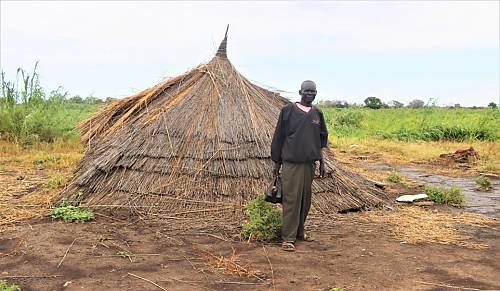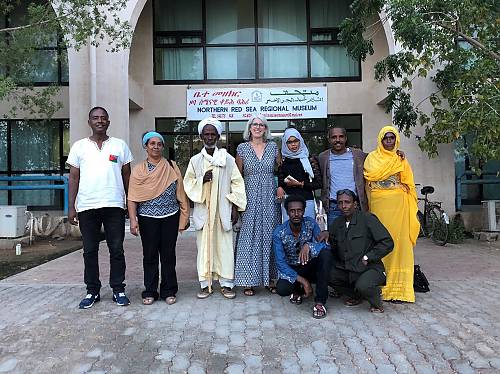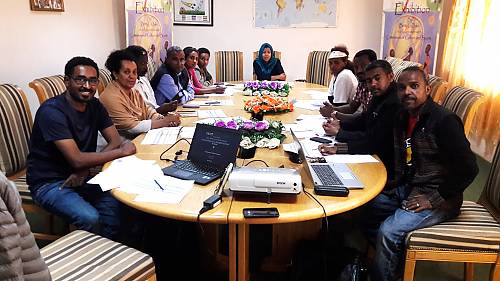The UNESCO Regional Office for Eastern Africa and the Ministry of Education celebrated the first Eritrean Cultural and Natural Heritage Legislation at a national ceremony on 28 January 2016. The legislation is aimed at protecting national cultural and natural heritage with particular focus on both tangible and intangible cultural heritage.
On this special occasion, the Minister of Education, H.E. Mr. Semere Russom noted that the legislation will provide Eritrea with a framework on protecting their intangible cultural heritage for future generations and addressed the importance of raising public awareness for the safeguarding of Eritrea’s intangible cultural heritage.
This historical step in the country’s legislature will not only emphasize the safeguarding of intangible cultural heritage but also its potential contribution to sustainable development.
The Director of the UNESCO Regional Office for Eastern Africa, Mr. Mohamed Djelid also shared the Minister’s views and noted that “this new heritage legislation provides the solid foundation on which Eritrea will be able to build a strong, sustainable and resilient heritage sector.” He congratulated Eritrea on its active and successful implementation of the 2003 UNESCO Convention for the Safeguarding of Intangible Cultural Heritage.
Eritrea’s National Proclamation No. 177/2015 for Cultural and Natural Heritage, adopted in September 2015, was developed with support from a UNESCO extra-budgetary project financed by the Government of Norway for Strengthening the capacities of Eritrea for implementing the Convention for the Safeguarding of the Intangible Cultural Heritage. This new legislation has also been published on the UNESCO Database of national cultural heritage laws.
The project, launched in October 2014, is being carried-out by UNESCO in close collaboration with the Cultural Affairs Bureau within the Ministry of Culture, the Eritrean National Commission for UNESCO, the National Museum of Eritrea, the Eritrean Research and Documentation Centre, and the College of Arts.
The next phase of the project will focus on carrying-out an inventory of intangible cultural heritage in Eritrea in close collaboration with local communities, and is scheduled to be finalized by December 2016.
Proyecto:
-
Strengthening the capacities of Eritrea for implementing the Convention for the Safeguarding of the Intangible Cultural Heritage (21 de marzo de 2014 – 31 de diciembre de 2017)




